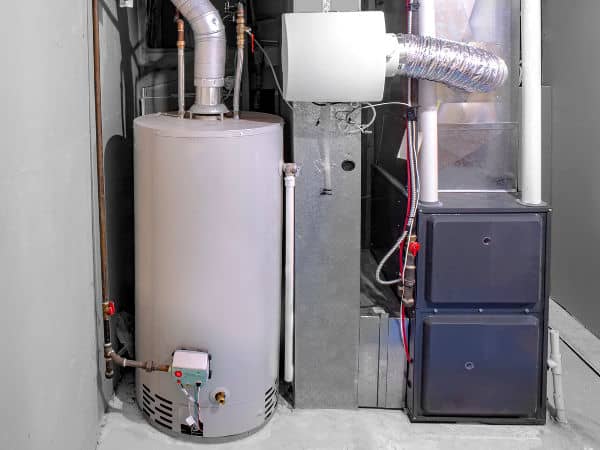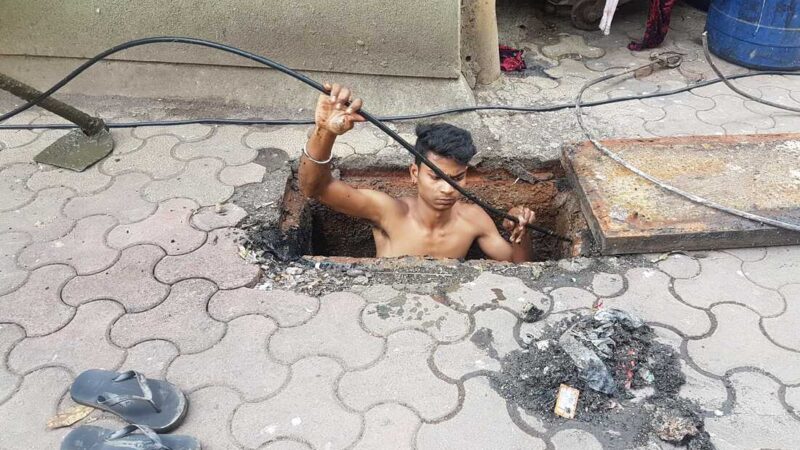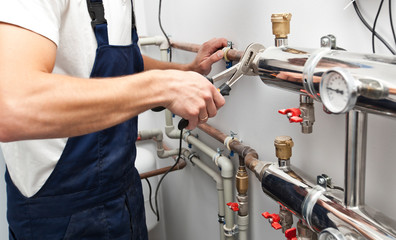What Does a Plumber Do?
Local Law 152 Plumbers are responsible for piping systems that supply water and carry waste away from homes and businesses. They also install and repair fixtures such as bathtubs, toilets, sinks, and showers. Some plumbers are self-employed and may work on contracts. Others work for large companies or the government.
A career as a plumber can be lucrative and challenging. It requires stamina and critical-thinking skills. It is also important to be able to identify and solve problems quickly.
Plumbers are tradespeople who install and repair systems that supply water and sewage to and from homes and businesses. They also install plumbing fixtures and appliances such as bathtubs, sinks, toilets, and dishwashers. They also inspect and test pipes for safety and compliance with building codes. Experienced plumbers may supervise apprentices and other plumbing workers. Plumbers typically earn higher salaries than many other construction tradespeople, and many belong to labor unions that negotiate their wages.
There are several paths to becoming a plumber, but most start by attending a vocational school to learn the basics of plumbing and related skills. They then complete an apprenticeship, which combines classroom instruction with paid on-the-job training. Once they have gained enough experience, they can apply for a journeyman plumber’s license. Some plumbers specialize in specific types of plumbing, such as drainage systems or high-rise residential systems.
Plumbing is a skilled profession that requires critical thinking and the ability to solve problems. It is also important to have physical strength, especially when working in tight spaces with small tools. Plumbers must also be able to communicate with customers and understand their needs. This is particularly true in the case of service and repair plumbers, who must be available on-call to address emergency situations.
The demand for plumbers is expected to grow over the next decade. This is due to the increased number of homes and commercial buildings being built, as well as the need to replace older pipes. Plumbers are usually paid an hourly rate, and their salary can vary depending on their level of expertise and the complexity of the job. Some plumbers work independently, while others are employed by a company that specializes in installing or repairing plumbing fixtures. These employers must comply with the laws governing their industry, including licensing and insurance requirements. Some plumbers also choose to attend continuing education courses to keep up with new technology and products. This allows them to provide better customer service and increase their earning potential. Some people even become master plumbers, whose duties include training and supervising other plumbers.
Education and training requirements
Plumbing is an important job that requires knowledge of how to install and repair different types of pipes. It also involves knowing how to properly use tools, including soldering irons and power tools. There are several ways to learn these skills, and many people start their career in this industry right after graduating high school. Others attend a college or trade program to receive the proper training. Once they have completed the education requirements, they can work as apprentices under a licensed master plumber.
To become a licensed plumber, you must complete an apprenticeship program and have at least five years of experience. You must also pass an exam. You can substitute directly related academic or technical training for one-half of the required experience. Moreover, you must have signed and notarized affidavits from master plumbers who can vouch for your experience.
The training requirements for becoming a plumber vary by jurisdiction. Typically, it takes four to five years to complete a formal apprenticeship program. However, the exact length of time varies from jurisdiction to jurisdiction. It is also possible to attend a plumbing program at a vocational institute or community college and earn a certificate in less time than an apprenticeship.
Once you have completed your apprenticeship, you must pass a test to be certified as a plumber. This exam consists of a written and practical part, and it is administered by the local board of examinations or another approved organization. The exam is based on the state’s construction codes.
Aspiring plumbers should also take part in a training program offered by their local union or trade organization. Many of these programs offer on-the-job training as well as classroom instruction. They should also look for an apprenticeship that is subsidized by their trade association.
The average age of a plumber is about 50, and there is a great need for new blood in this profession. The current economic climate has boosted demand for skilled workers, especially in the construction sector. In addition to a strong interest in the field, plumbers should have good communication and interpersonal skills. They must also be detail-oriented and have excellent troubleshooting abilities.
Job outlook
Plumbing is a highly skilled trade, and demand for plumbers should remain strong. Moreover, as the baby boomers enter retirement age, the demand for these professionals will increase even further. In addition to new construction projects, plumbers should find opportunities in the repair and maintenance of existing systems. New bathroom remodeling, stricter water efficiency standards, and fire sprinkler system requirements will also generate additional job opportunities.
Plumbers should consider joining professional associations to further their careers. These organizations provide members with loads of educational and professional resources that they might not otherwise have access to. Likewise, membership provides plumbers with leadership opportunities and the opportunity to network with other contractors.
A successful career as a plumber will require a great deal of creativity and problem-solving skills. Plumbers often work in tight spaces and must navigate around obstacles such as pipes, valves, and fixtures that are embedded in walls or concrete. These factors make the profession challenging but can lead to a rewarding career for those who are willing to work hard.
Whether working on construction sites or installing new bathroom fixtures, plumbers need to be familiar with the latest technology in the field. Modern plumbing technology includes high-efficiency toilets, touchless faucets that save water and energy, and leak detectors that can be controlled by smartphones or tablets. Having knowledge of these technologies will help plumbers be more effective and efficient at their jobs.
The Bureau of Labor Statistics reports that employment growth for plumbers, pipefitters, and steamfitters is expected to be moderate. However, employment for these workers is sensitive to fluctuations in construction activity. During periods of declining construction, plumbers may experience layoffs and shortages. In addition, workers in this occupation must be able to adjust their workloads when there are changes in building activity.
While most plumbers are employed by large companies, there is always the option of becoming self-employed and starting a small plumbing company. This type of business can be very profitable, especially if you have good relationships with clients. In addition to the financial rewards, self-employment can be very fulfilling, as it allows you to work when and where you want.
Work environment
A plumber’s work environment is often cramped and dirty. They spend most of their time alone, without supervision. They also have to lift heavy materials and stand or crouch for long periods of time. This can lead to back and muscle problems. Plumbing is a dangerous profession, especially for those who are not careful and use tools incorrectly. Plumbers may also be exposed to hazardous chemicals and bacteria. For example, they might be required to handle human waste in sewer systems. This can cause diseases like cholera, typhoid, hepatitis, and cryptosporidiosis.
Licensed plumbers can work in a variety of environments, including residential, commercial, and industrial settings. They can also choose to become independent contractors or work for large companies. Those who are interested in becoming plumbers should attend a vocational school or community college to receive certification and training. They should also complete an apprenticeship to gain on-the-job experience. After completing their apprenticeship, they should pass a state exam to become certified plumbers.
The job duties of a plumber include the installation, maintenance, and repair of water pipes and fixtures. They can also install and repair bathtubs, toilets, sinks, and dishwashers. They must have excellent problem-solving skills to identify and resolve issues. Plumbers need to have strong analytical and technical skills to read blueprints and understand how piping systems work.
In addition to installing and repairing water and drainage systems, plumbers can also perform inspections and tests. These can include examining the condition of water and gas pipes, testing for leaks, and determining if there are any other problems with the system. Plumbers can also inspect sewer systems for clogs and blockages.
Plumbers are usually required to work typical business hours, but they must be on call for emergencies. This means they will have to work on weekends and evenings. In some cases, they may be required to travel to other locations to fix a plumbing problem. Therefore, it is important for potential plumbers to consider their schedule and lifestyle before pursuing this career path.





